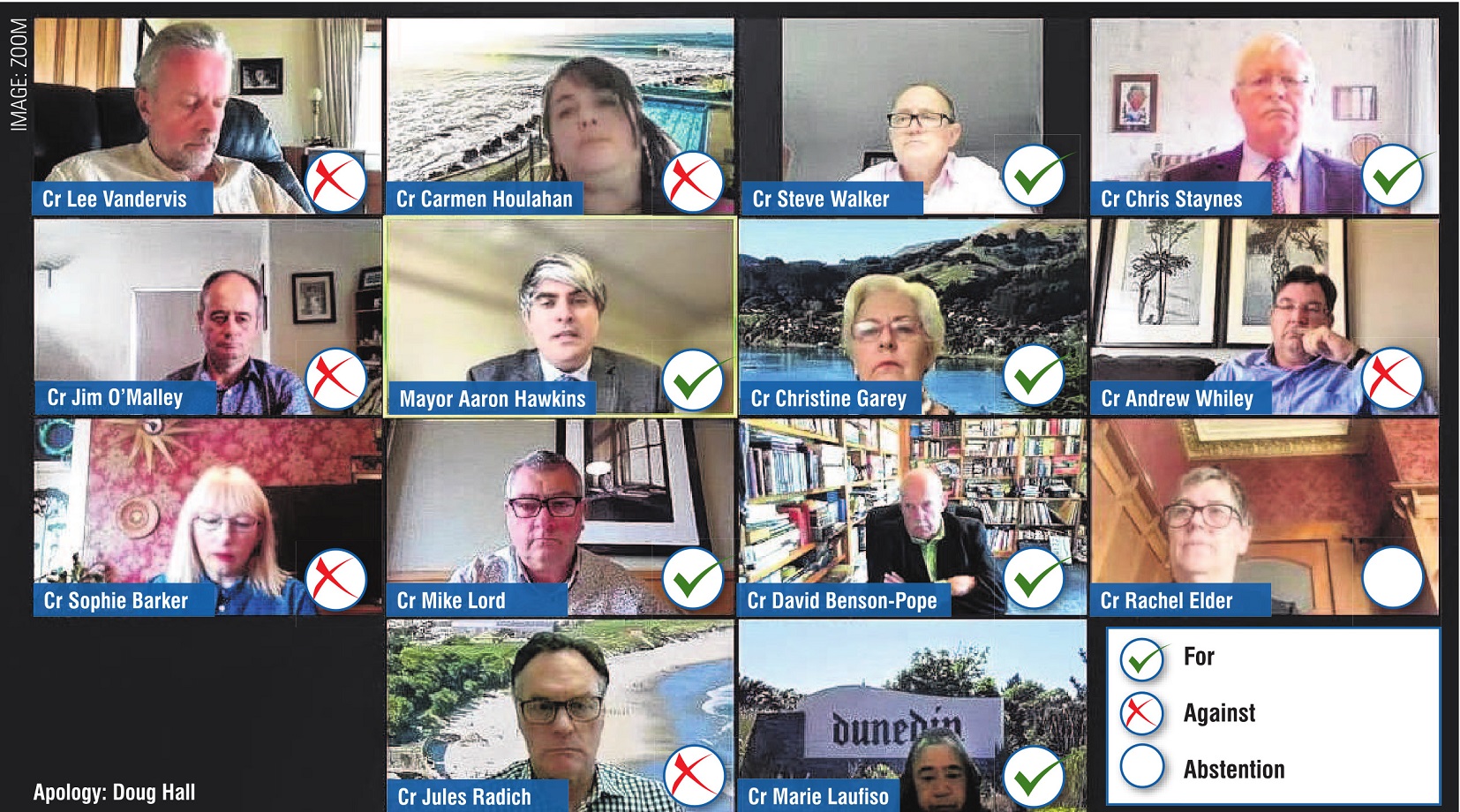The fundamentals of the Dunedin City Council’s relationship with mana whenua were shaken by the council’s brief membership of a Three Waters lobby group, but repairs are under way, the city’s mayor says.
"We are committed to the principles of the Treaty of Waitangi, and our relationship with mana whenua, and we will be working hard to put things right," Dunedin Mayor Aaron Hawkins said.
The city’s elected members voted 7-6 yesterday to revoke last month’s decision to join Communities 4 Local Democracy, a collective of more than 30 councils opposed to key aspects of the Government’s Three Waters reform programme.
Mr Hawkins argued joining the group had amounted to the council turning its back on mana whenua, represented by Te Runanga o Otakou and Kati Huirapa ki Puketeraki, who have ancestral links to the area.
This prompted the two runanga to suspend their involvement in the council’s Maori participation working party, which has input into strategies and projects.
Mr Hawkins said repairing damage to the relationship would take time.
Te Runanga o Otakou chairwoman Rachel Wesley and Kati Huirapa ki Puketeraki chairman Matapura Ellison said they were greatly heartened by yesterday’s decision.
"We respect the council’s right to argue for its position, just as Kai Tahu will argue strongly for ours in an effort to ensure more equitable, sustainable and affordable water services," they said in a joint statement.
"What we disagreed with strongly was the decision to outsource the council’s position to a splinter group campaign that has not engaged with mana whenua in any meaningful way."
Cr Jim O’Malley, among the six councillors outvoted yesterday after the 8-7 result that went his way last month, said he had fought to prevent the council losing control of about $3 billion of assets.
Government reforms include planned regional water services entities assuming control of some council assets.
Cr O’Malley said he had not been able to engage the mayor about loss of local control and was frustrated about the council’s lack of communication with iwi.
"It has always puzzled me the extent to which multiple requests to actively engage with Ngai Tahu have never been met with any actions in this council," Cr O’Malley said.
It turned out they were on a collision course:
"Our trains were on the same track running towards each other at full throttle and nobody was talking."
Cr Carmen Houlahan described the Government as a bully forcing councils into compliance with its agenda.
Cr Rachel Elder abstained from the vote and said this was the toughest call she had made as a councillor.
"I value our relationship with mana whenua dearly and news our relationship had been damaged has been heartbreaking to me," Cr Elder said.
"I also continue to have serious concerns about the Government’s Three Waters reform programme."
Cr Doug Hall, like Cr Elder, had voted to join the advocacy group last month, but said he had genuine reasons for not being able to attend yesterday’s meeting.
"If you want to talk to the surgeon, you can," Cr Hall said.
Cr Steve Walker said last month’s vote made him feel sick in the stomach.
Maori had faced 180 years of being minimised, ignored and shut out, he said.
Deputy mayor Christine Garey said the council’s previous decision had made a mockery of the council’s commitment to Treaty of Waitangi principles.
"May we look to a brighter future for all of us."
Cr Lee Vandervis objected to the term splinter group and said yesterday’s decision was a sad turning point for Dunedin.

"Communities are asking, ‘Where’s our say?’."
Cr Andrew Whiley said the council risked being at the mercy of Three Waters reform, as dictated by central government.
Consultancy for the two runanga, Aukaha, welcomed the council’s U-turn.
"We have had some amicable but honest exchanges with councillors and runaka members in recent days," Aukaha board chairman Edward Ellison said.
"Thankfully, after some deep thinking, the right decision has been made. I believe this will be remembered ultimately as a defining point in the relationship for many years to come."
Cr David Benson-Pope said the council had "got into a tent with people many of us would not want to share time with".
"We got it wrong," Cr Benson-Pope said.
"This is an opportunity to begin to heal the hurt."
They said it
"There are plenty of ways to make our point to government that don’t require us to turn our back on mana whenua"
Mayor Aaron Hawkins
"It is absolutely absurd to dish out the race card when this has nothing to do with race"
Cr Carmen Houlahan
"It is likely the most important vote you will cast in your time as an elected member"
Cr Christine Garey
"We have here a question at its essence - value local democracy or accept centralised control?"
Cr Lee Vandervis
"We have obligations as a local authority to take our Crown-delegated responsibilities seriously"
Cr Steve Walker
"I urge some of you around this table to ignore your party-political masters and stand up for Dunedin"
Cr Jules Radich
"I felt abstaining was the best way to protect our city’s relationship with mana whenua while also leaving room for my concerns about the Government’s reforms"
Cr Rachel Elder
"Our trains were on the same track running towards each other at full throttle and nobody was talking"
Cr Jim O’Malley












